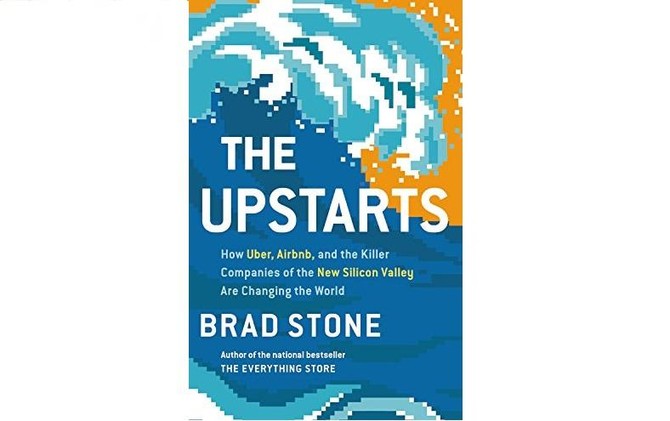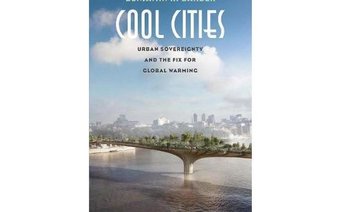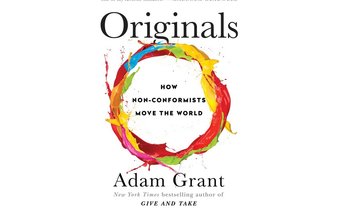The rise of smartphones and social media has enabled the expansion of the sharing economy, a phase during which the likes of Uber and Airbnb were born.
The power of these entrepreneurial ventures is continuously rising. Airbnb has already exceeded 10 million guest stays and Uber continues to grow despite its current failings. No matter how bad the PR is getting for Uber, consumers do not seem to care. As long as the company’s ride hailing app continues to outperform rival apps, Uber will continue to dominate the market.
Brad Stone has covered the Silicon Valley as a journalist for more than fifteen years. After his book “The Everything Store: Jeff Bezos and the Age of Amazon,” which won the Financial Times and Goldman Sachs Business Book of the Year Award in 2013, he is back with an enthralling account of how Uber and Airbnb came to be and how a new generation of entrepreneurs are changing the way we live in “The Upstarts: How Uber, Airbnb, and the Killer Companies of the New Silicon Valley Are Changing the World.”
Travis Kalanick and Brian Chesky, the young CEOs behind Uber and Airbnb respectively, are part of a new breed of tech leaders who are different from the previous generation of introverted innovators such as Bill Gates, Larry Page and Mark Zuckerberg.
“Instead, they are extroverted storytellers, capable of positioning their companies in the context of dramatic progress for humanity and recruiting not only armies of engineers but drivers, hosts, lobbyists and lawmakers to their cause” Stone wrote in the book.
Chesky grew up in Niskayuna, New York, in a middle-class family. Joe Gebbia, who co-founded Airbnb with Chesky, was born in Atlanta, Georgia. The pair met in classes at the Rhode Island School of Design and became firm friends.
After Gebbia graduated, he went to San Francisco and asked Chesky if he would like to come and share the rent of his apartment. Chesky told Gebba that if he made the move, he would keep a new part-time teaching job in Los Angeles but would spend the weekends in San Francisco. For that reason, he asked Gebbia if he could rent the couch in the living room for $500 a month instead of renting a whole room. Gebbia replied that Chesky needed to be fully committed or else he would have to give up the apartment. Just as Chesky decided to make the move, Gebba sent him the e-mail that would change their lives: “I thought of a way to make a few bucks, turning our place into a designer’s bed and breakfast, offering young designers who come into town a place to crash during the four-day event (a design conference), complete with wireless Internet, a small desk place, sleeping mat and breakfast each morning. Ha!”
It took the pair three days to put together the first Airbedandbreakfast.com website using free tools available online. The first guest to use Airbedandbreakfast.com was Amol Surve. He was greeted at the door by the site’s co-creator Gebbia. Surve, who came from Mumbai, had use the Internet to rent an airbed for $80 a night because all the hotels in the area were either booked or too expensive.
He did not know what to expect but soon loved the experience of living in a temporary home. Two other guests also used the apartment during the design conference. After the three travelers left, the co-founders were not only able to pay their rent but they were also touched by the friendships they had made with their guests.
For a year, nothing happened. Chesky and Gebbia looked for investors but “very few people even met with us, they considered us crazy,” Chesky admitted. However, by 2010, Airbnb covered 8,000 cities.
While Chesky and Gebbia were working on better versions of what was still known as Airbedandbreakfast.com, Garret Camp, a Canadian entrepreneur, had just sold a website discovery tool, StumbleUpon, to eBay for $75 million. He was rich and living the good life but he had one problem — his Mercedes-Benz sports car. It stayed in the garage and he barely used it as he found driving in San Francisco to be too stressful. He became obsessed with the idea of an on-demand car service that passengers would be able to track via a map on their phones. He soon found out about the German word “Uber” and settled for the name “UberCab.”
On Nov. 17, 2008, Camp registered UberCab as an LLC in California. In December, on his way to attend LeWeb, a high-profile technology conference in Paris, he stopped in New York to meet Oscar Salazar, a friend. He shared his idea with Salazar who had also experienced problems with cabs in Mexico, Canada and France. “I don’t know if this is a billion-dollar company but it’s definitely a billion-dollar idea,” Salazar said before developing a prototype for Camp.
When UberCab looked for capital, most Silicon Valley investors passed on the deal, just as they had with Airbnb. Eventually, Uber gathered $1.3 million and proceeded to make history.
Uber, unlike Airbnb which had become global as soon as it was launched, had to enter each market on an individual basis. Each city was different and presented unique challenges. One of the greatest problems that Uber faced was the fact that it used contract drivers instead of full-time employees. This triggered endless controversies linked to background checks, proper insurance and the safety of both the drivers and the riders using its service.
By the end of 2016, Uber introduced a new type of work flexibility for its drivers and it also lowered the price of its fares. These measures boosted Uber’s business. In 2014, Uber booked 200 million rides while in 2016, the total number of rides reached one billion and six months later, the number had already doubled.
By the end of 2016, Airbnb and Uber had thousands of employees and offices around the world.
Stone gives us a detailed account of how this new breed of CEO — bold, ruthless and resourceful — is making a lasting impact on the way we live and travel.
Book Review: How Uber and Airbnb are changing the world
Book Review: How Uber and Airbnb are changing the world

What We Are Reading Today: ‘In The Brain, In Theory’

- Engineering is the use of knowledge to solve technical problems, to build an artifact with a plan
Author: ROMAIN BRETTE
“In The Brain, In Theory,” Romain Brette argues that the brain is not a “biological computer” because living organisms are not engineered.
Engineering is the use of knowledge to solve technical problems, to build an artifact with a plan. Brette reviews the main theoretical frameworks for thinking about the brain, including computation, neural representations, information, and prediction, and finds them poorly suited to the study of biological cognition.
He proposes understanding the brain as a self-organized, developing community of living entities rather than an optimized assembly of machine components.
What We Are Reading Today: ‘Physics of the Tropical Atmosphere and Tropical Cyclones’

Author: Kerry Emanuel
“Physics of the Tropical Atmosphere and Tropical Cyclones” provides readers with a firm grounding in the observations, theory, and modeling of tropical weather systems and tropical cyclones.
How and why do tropical cyclones form? What physics underpins their genesis, intensification, structure, and power?
This authoritative and accessible book tackles these and other questions, providing a unifying framework for understanding most tropical weather systems.
What We Are Reading Today: The Seed Detective by Adam Alexander

In “The Seed Detective,” Adam Alexander shares his own stories of seed hunting, with the origin stories behind many of our everyday vegetable heroes.
Taking us on a journey that began when we left the life of the hunter-gatherer to become farmers, he tells tales of globalization, political intrigue, colonization and serendipity – describing how these vegetables and their travels have become embedded in our food cultures.
What We Are Reading Today: ‘What Matters in Jane Austen?’

- In this work he poses 20 questions such as: “Why is the weather important?” “How much money is enough?” “Why is Darcy so rude?” and “What do the characters call each other?”
Author: John Mullan
To mark 250 years since the birth of one of the most famous women authors in English literature, John Mullan’s “What Matters in Jane Austen? Twenty Crucial Puzzles Solved” has been reissued.
First published in 2012, the book is a kind of literary scavenger hunt, with Mullan as guide — witty, knowing and visibly delighted by the patterns and puzzles he uncovers.
We go on the journey with him, uncovering the meanings embedded in the seemingly minor, but not minute, details of Austen’s fiction.
The Lord Northcliffe professor of modern English literature at University College London, Mullan is a leading authority on Austen. He has edited “Sense and Sensibility” and “Emma” for Oxford World’s Classics and has published widely on 18th- and 19th-century literature.
In this work he poses 20 questions such as: “Why is the weather important?” “How much money is enough?” “Why is Darcy so rude?” and “What do the characters call each other?”
That last question forms one of the book’s most interesting chapters for me. It’s about the seemingly stealthy and subtle ways in which the characters address others by a name and the power of not saying their name at all.
In Austen’s world, names are never casual. A shift from a formal title to a first name can signal a change in status, desire or familiarity. A name can be a quiet form of rebellion or a coded expression of closeness or longing. It matters whether someone is “Miss Bennet” or “Elizabeth,” whether a man dares to use her given name directly and whether that liberty is permitted or returned.
Again and again, Mullan shows us how much Austen could signal with the smallest of choices. What seems like a passing detail is likely loaded with meaning.
This new edition, with a fresh preface, is a fitting tribute to Austen’s longevity. Rather than framing her novels as relics to admire, Mullan treats them as living texts full of sly codes and sharp decisions.
It offers fans of Austen’s work something they crave: evidence. A deep dive into the text itself.
By the end, the title becomes clear, not just because Mullan asked the right questions but because, through his close reading and sharp observations, we begin to get answers.
To Austen, who died in 1817, everything mattered: names, clothes, weather, silence. And more than two centuries later, her world — precise, constrained, emotionally charged — still has plenty to show and tell.
What We Are Reading Today: ‘The Stoic Mindset’

- Tuitert’s narrative begins with his own crucible: the pressure-cooker world of elite athletics, where injuries and setbacks threatened his career
Author: Mark Tuitert
Olympic champion speed skater Mark Tuitert merges ancient philosophy with modern resilience in “The Stoic Mindset,” published in 2024.
The guide transcends typical self-help tropes, offering strategies to transform adversity into strength through the principles of Stoicism.
This ancient philosophy provides a tool kit for staying calm, focused, and strong in the face of life’s chaos. Emerging in Ancient Greece and later popularized in Rome, it is less about dusty theories and more about how to live well.
Tuitert’s narrative begins with his own crucible: the pressure-cooker world of elite athletics, where injuries and setbacks threatened his career. His discovery of Stoicism became his mental armor. The book meticulously unpacks core tenets, focusing on actionable responses, reframing obstacles as opportunities, and cultivating “amor fati” (love of fate).
What resonates most is Tuitert’s rejection of passive acceptance. Instead, he advocates active resilience, using journaling, mindfulness, and preemptive adversity training to fortify mental agility.
His chapter on failure dissects how embracing vulnerability fuels growth, illustrated by his comeback from a career-threatening injury to clinch gold at the 2010 Vancouver Olympics.
Tuitert’s prose is refreshingly pragmatic. He avoids academic jargon, grounding Seneca and Marcus Aurelius’ wisdom in relatable anecdotes — from navigating corporate burnout to parenting challenges. His emphasis on practice over theory stands out as well.
Some may criticize the athletic parallels as niche, but Tuitert universalizes them deftly.
While examining Tuitert’s practical Stoicism, I happened to contrast his Olympic-forged resilience with Nietzsche’s fiery critique of Stoic detachment, revealing how one stabilizes storms while the other ignites revolutions.
I found that Tuitert seeks mastery through emotional discipline, whereas Nietzsche champions vitality through embracing chaos.
In an era of digital overload and anxiety, “The Stoic Mindset” is a tactical manifesto for clarity.
Tuitert’s genius lies in making a 2,000-year-old philosophy feel urgently contemporary, proving that true victory is not avoiding storms but learning to dance in the rain.



















